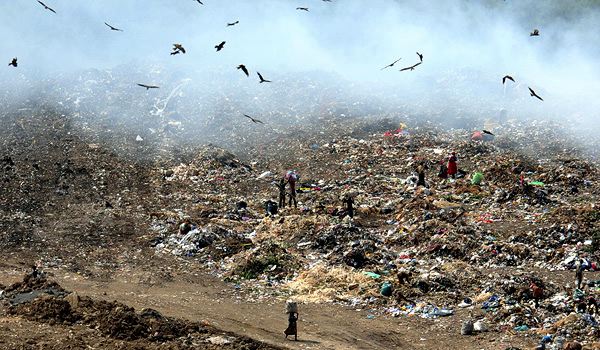
In classificatory systems, the proletariat is not, strictly speaking, a class at all. Amid the multitude of different classes (both actual and possible) the proletariat marks those who are excluded from the class system as such. Hence Marx was not particularly interested in class conflict. For Marx the primary conflict was not between various classes, but rather between the various classes (that make up a set) and those who are excluded from the classificatory system as such.
Hence the critique that Marx failed to take into consideration the rising standard of living among the working classes (partly seen in the rise of the middle classes) doesn't hold as theoretically significant.
We can understand this idea via reference to "Russell's paradox" as captured in the famous problem of creating a catalogue of "all catalogues that don't list themselves."
The paradox can be described as such: If the National Library wishes to create a catalogue that "lists all library catalogues that don't list themselves," then the question must be raised, "Should that catalogue list itself?"
If the answer is "no" then the catalogue remains incomplete because it fails to list one catalogue that does not list itself within its own pages. Yet if it does include itself then the catalogue contains an error, for in listing itself it actually lists one catalogue that does name itself.
This is how the proletariat can be understood to inhabit our world. For the point is neither that they exist as a poorer class, nor that they currently exist outside the set of all classes (to be potentially included at some future point), but rather that they are the group that is eternally excluded. More than this they are the excluded group that renders all identificatory markers (whether racial, sexual, religious or cultural) incomplete.
The set of all classes is not incomplete because there are always more classes that could be formed, but rather because the set is always haunted by an outside that it cannot incorporate within itself.
In a Marxist rewriting of that well known Christ saying about the poor always being among us we might say then that, structurally speaking, "the proletariat you will always have with you."
For they are precisely the excluded that always unsettles the smooth running of our power systems. Who they are will change depending on the historical situation (woman, Jews, Muslims, GLBT, etc.) but the excluded "class of no class" will continue to exist as the no-things that continually de-center the things that are.
As such the proletariat are a thorn in the side of all class systems, the eternal specter that haunts them, unsettles them and fractures them.
In this way the proletariat are a type of invisible force in history, the dead who are utterly excluded from our systems yet which constantly threatens those systems.
We can sense this logic in a palpable and personal form when walking past a homeless person. While we might attempt to ignore them completely and exclude them from our purview, their presence disturbs us as we pass, forming within us the anxiety of guilt.
In this way the proletariat can be described as the trash of the world. They are the waste that is kept outside the home of our class identifications. In short, they are in the world but not of it.
Interestingly the phrases "being in the world but not of it" and "the trash of the world" have a deeply significant theological meaning. For they are both expressions developed by the apostle Paul to express the essential nature of the Christ collective.
In his book "Signs of Emergence," Kester Brewin describes how dirt is "matter out of place." It is that which is in our world and yet which disturbs it. Trash, as the collection of waste that we wish to remove from our homes, is both in our world and yet not of it, there yet somehow standing apart from it.
What strikes us here is the way in which this description of dirt also holds for the idea of the holy. For the holy is also that which is in our world and yet not of it, that which is set apart and disturbs the regular run of things.
By describing the trash of the world as the Christ collective, we find a fascinating coincidentia oppositorum occurring in Paul between the sacred and garbage. Something that Brewin grasps in his development of a "theology of dirt."
In Paul's definition of the trash-people as the divine collective, the crap and the holy are joined together in a type of parallax similar to what we find in the wave-particle duality discovered by physicists.
By employing the logic of Paul we can then claim that the "place of no-place" which the outsider marks is nothing less than the holy site where our world is constantly under threat of being undone.
Theologically speaking, the complete outsider, whom we treat as dead, thus haunts us as a type of sacred undead. An idea that is beautifully captured in the proclamation of Paul that God chose "the things that are not -- to nullify the things that are."